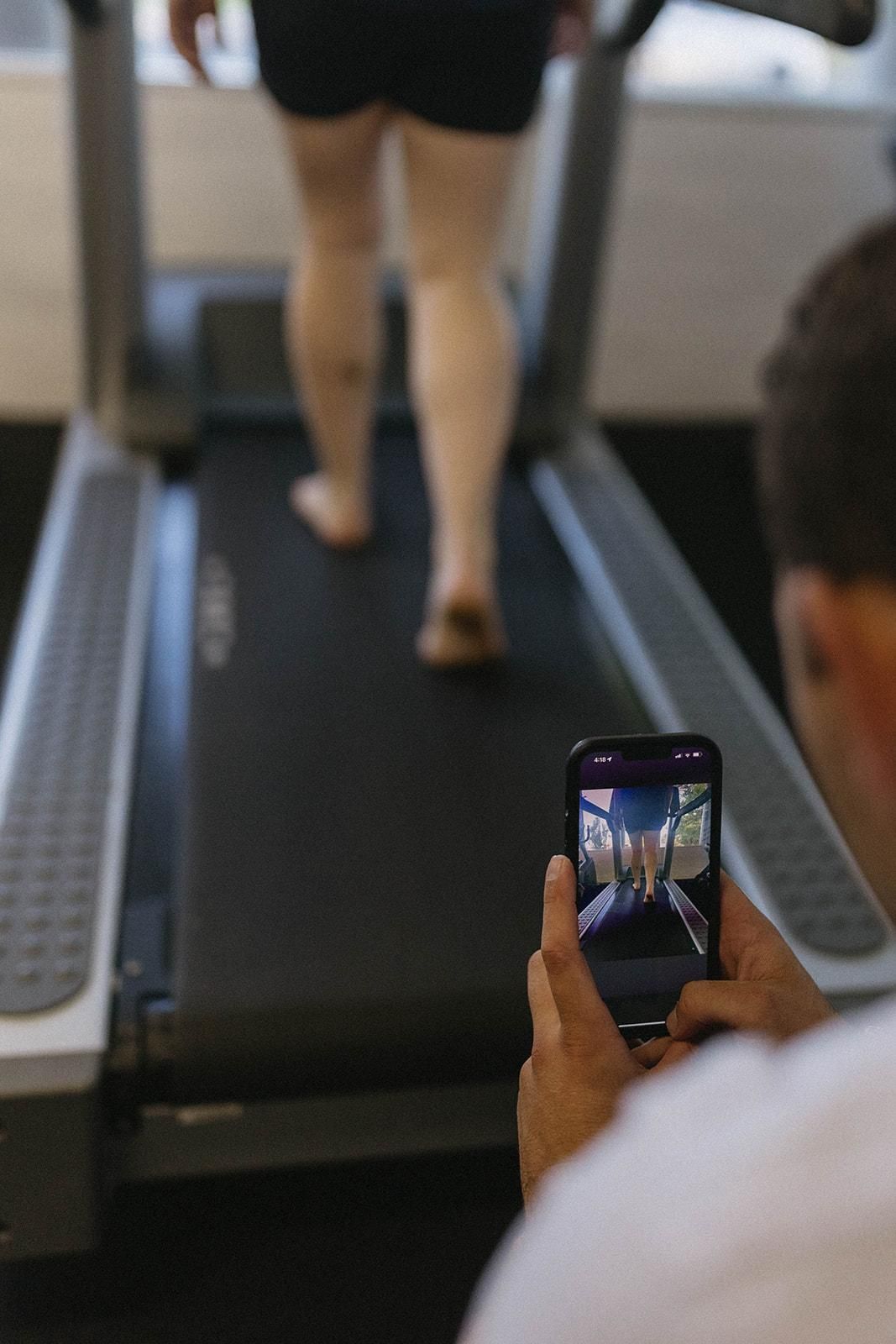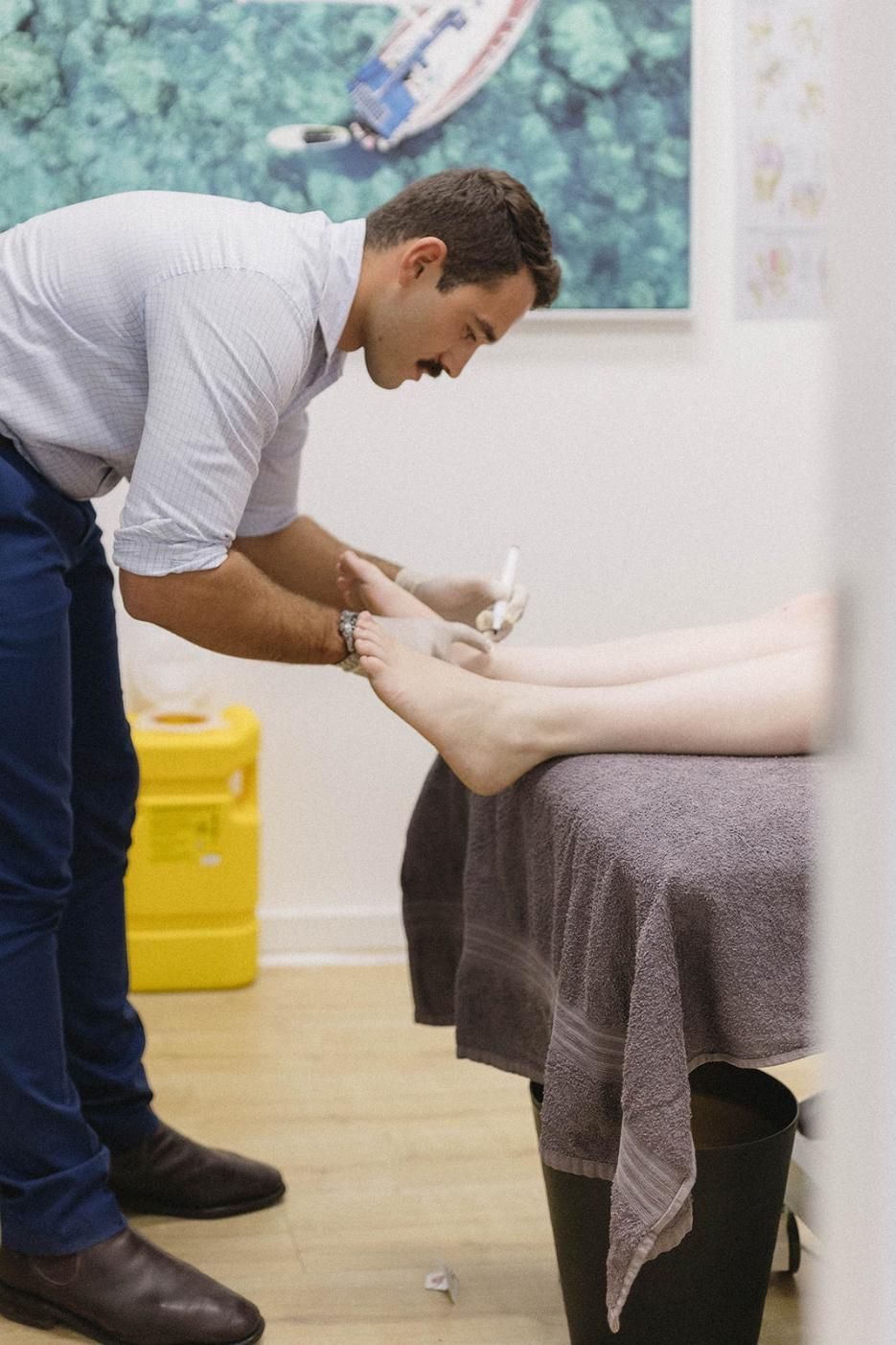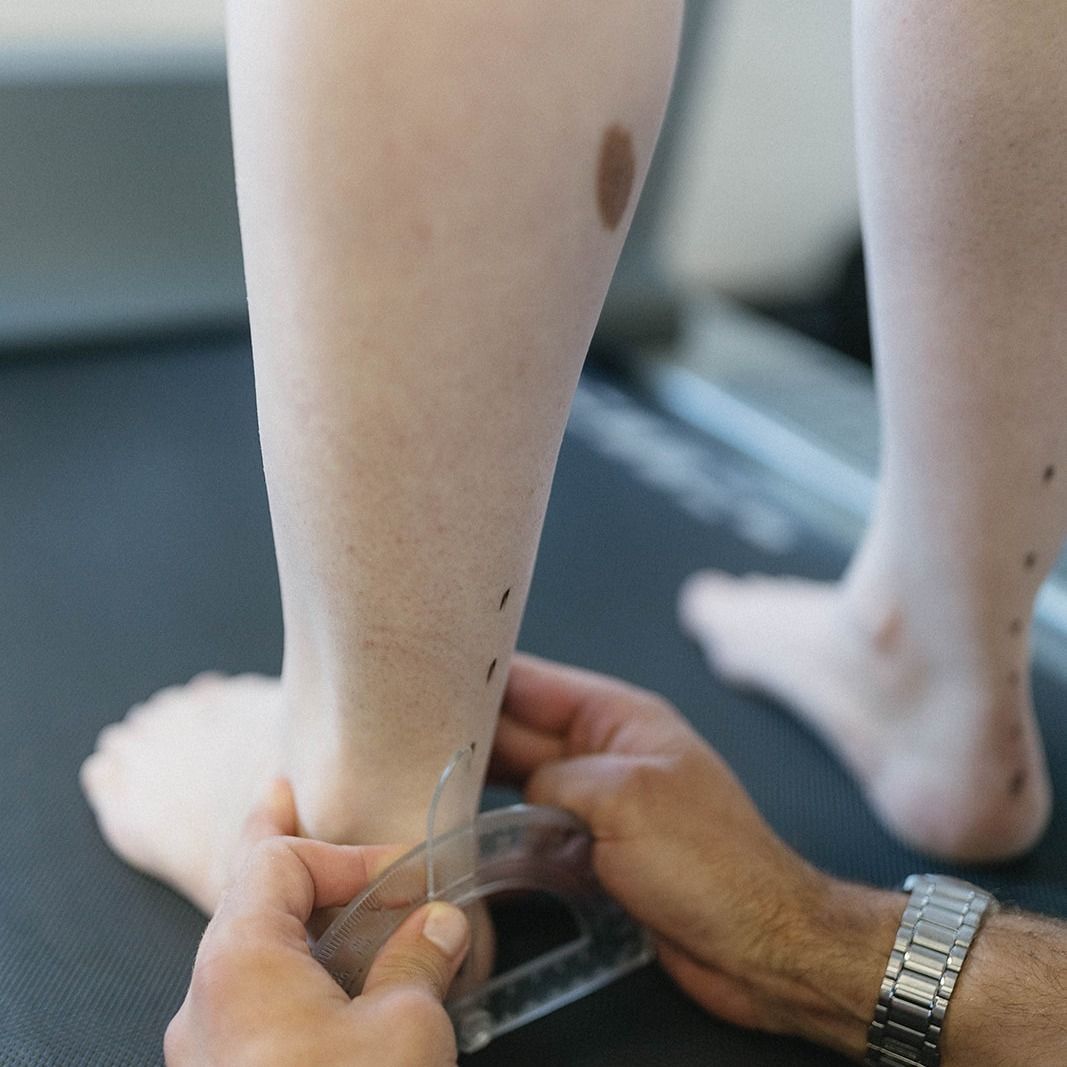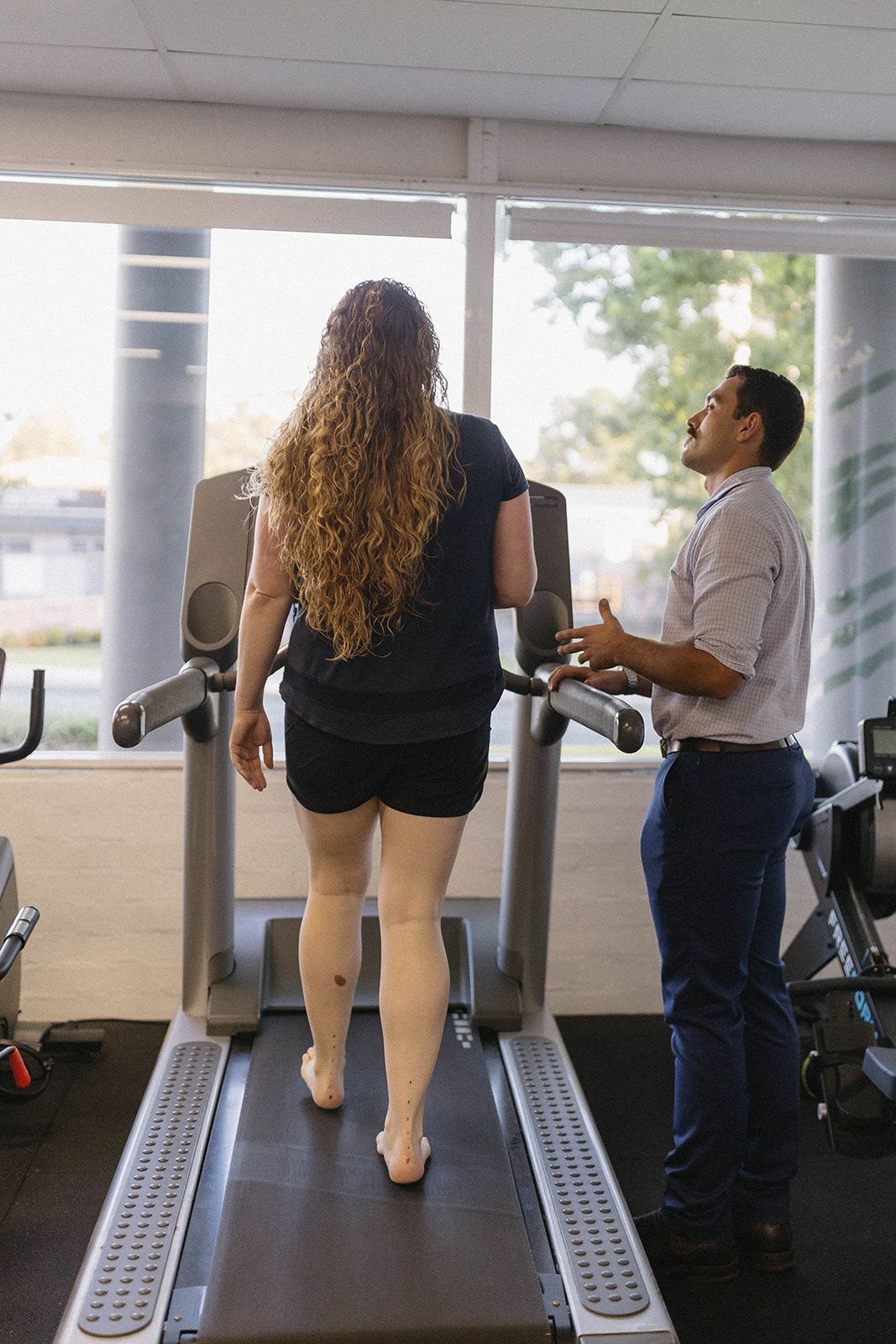Biomedical Sports Podiatry
Gait Analysis in Forster
We use advanced movement analysis and tailored treatment plans to support long-term foot function, mobility, and performance.
Movement Insight
Forster Gait Analysis
Foot and leg pain often stems from how your body moves—not just the injury itself. At Biomedical Sports Podiatry in Forster, we use gait analysis to better understand your walking or running mechanics, identifying patterns that may contribute to discomfort, reduced performance, or recurring issues.
Using tools like pressure mapping, high-speed video capture, and joint range testing, we evaluate how your feet, legs, and hips are working together. This helps uncover the root causes of common concerns such as forefoot pain, heel discomfort, or ongoing knee tension. It also helps us detect gait inefficiencies that may not feel obvious day to day but contribute to fatigue or injury risk over time.
That insight helps guide treatment decisions—whether that’s custom orthotics, foot mobilisation, sports podiatry, load management, or targeted strengthening.
Call 0466 691 935 to book your appointment. We support patients in Forster, Taree, Gloucester, Diamond Beach, Pacific Palms, Nabiac, and Old Bar.
Functional Testing
How Gait Guides Care
Gait analysis plays a key role in identifying how your body responds to stress, exercise, and everyday movement. It’s not just about how your feet hit the ground—it’s about how your body works as a whole system. By observing the way you move, we can assess how joints and muscles are functioning, how force is absorbed, and where overload might be occurring.
Depending on your presentation, we may look at walking gait, running technique, or specific movement patterns linked to your sport or job. A combination of observational analysis and pressure-sensing tools can help identify areas of instability, reduced joint control, or inefficient loading. This information is then used to inform your care plan.
If you’ve been dealing with unresolved discomfort, overuse pain, or want a clearer understanding of your movement, gait analysis offers real insight. It’s a practical way to connect symptoms with structure, so you can move forward with informed care and more confidence.
Patients & Conditions
How We Can Help
At Biomedical Sports Podiatry, we use advanced gait analysis to assess how your body moves and to uncover the root cause of pain or injury. Gait analysis is valuable for a wide range of people—not just elite athletes. If you're dealing with recurring foot, knee, hip or lower back pain, or struggling with ongoing injuries that never seem to fully heal, gait analysis can offer clear answers.
It's especially useful for runners, active individuals, children with developmental concerns, or anyone with biomechanical issues like flat feet, high arches or leg length differences. We also recommend it for people managing conditions like arthritis or diabetes that affect movement.
Our goal is to provide tailored insights and treatments that improve performance, prevent injuries and restore comfort in everyday movement.
Need Help?
Frequently Asked Questions
What is gait analysis used for?
Gait analysis is used to assess how your body moves when walking or running. It helps identify mechanical issues, imbalances, or load-related stress that may cause pain or impact performance. Podiatrists use this information to guide treatment planning, such as orthotic design, rehabilitation, or injury prevention strategies tailored to your activity level.
Can gait analysis help with chronic pain?
Yes, gait analysis is often used when chronic pain is linked to movement issues. By reviewing how the body absorbs force, a podiatrist can identify patterns that may contribute to repeated strain or discomfort. This can be particularly helpful for people with conditions like plantar fasciitis, knee pain, or shin splints.
Is gait analysis only for athletes?
Not at all. While athletes benefit from gait assessments, they’re equally helpful for anyone managing foot, knee, or hip discomfort. Gait analysis can provide insight into the cause of everyday pain, guide recovery from injury, or help improve comfort during walking or daily activity—regardless of fitness level.









